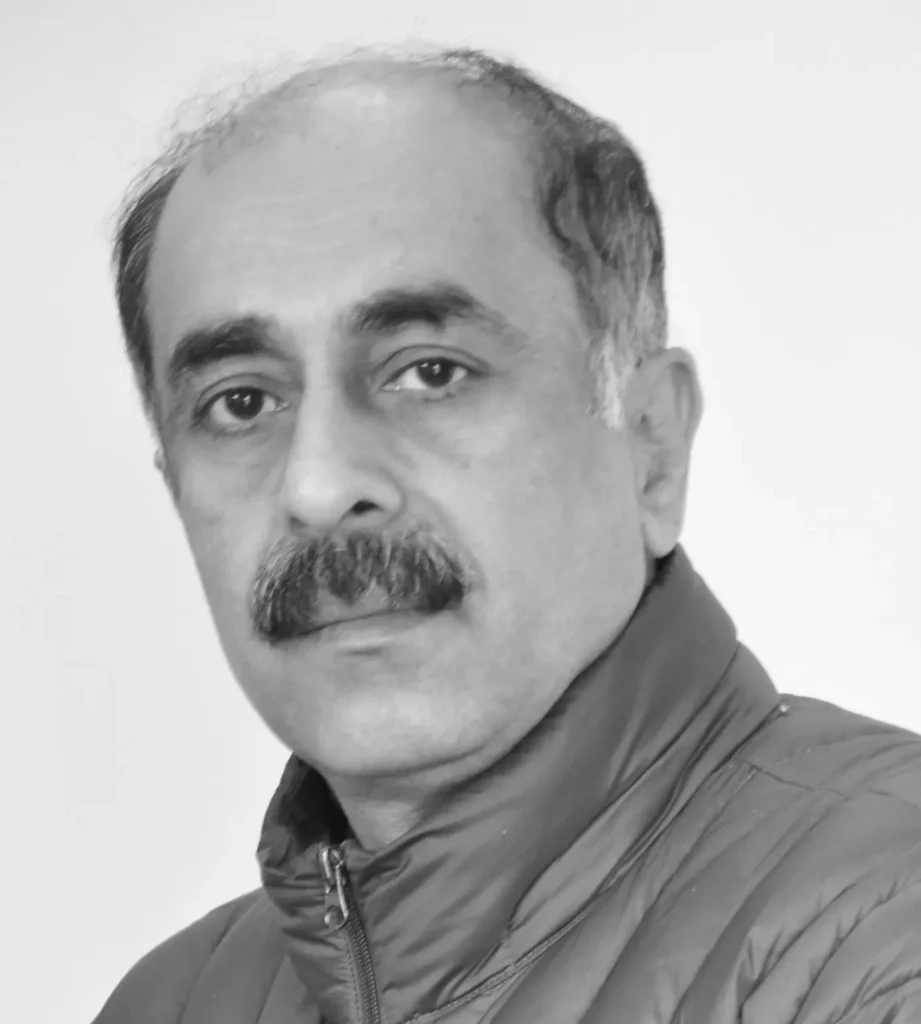
Robinder Sachdev is a globally recognized expert on geopolitics and American culture. A prominent media personality, his insights and interviews have featured in over 10,000 broadcasts and publications across the past 25 years—including CNN, CNBC, BBC, The Wall Street Journal, The New York Times, and The Washington Post.
He has served as adjunct faculty at American University in Washington, D.C., advised and reported directly to a Prime Minister, and his work in international relations has been featured in case studies and PhD research at leading universities. In 2021, a study in the Journal of the American Political Science Association, authored by post-doctoral fellows at Georgetown University, profiled him as one of the influential figures shaping U.S. foreign policy in a project spanning the 1930s to the 2020s.
In 2024, Sachdev was awarded the prestigious King Sejong the Great Hangeul Grand Prize, honoring his contributions to international relations and global peace

Sachdev began his professional journey in 1987 as a software engineer and later became a telecom entrepreneur, launching a broadband wireless company in Northern Virginia’s tech corridor—backed by strategic and institutional capital. This followed an early career in software development, big data systems, and corporate strategy for cellular networks such as Sprint and Bell Atlantic during their M&A-driven expansion in the 1990s.
The 9/11 attacks marked a profound turning point in his professional trajectory. Moved by the scale of human tragedy and the surge of fear and polarization that followed—echoing Samuel Huntington’s thesis on the clash of civilizations—he made the pivotal decision to divest from his company and transition into the field of international relations and leadership development. Over the past 25 years, he has built a distinguished career at the intersection of public diplomacy, geopolitics, strategic communications, and global media engagement.
Since 2002, in an entrepreneurial role within international affairs, Sachdev has advised governments, legislators, and business leaders across the United States, Europe, the Middle East, the Far East, and India. His contributions to U.S. foreign policy include supporting Senate leaders during caucuses on the war on terror, organizing congressional briefings and high-level delegations, and assisting small and medium-sized enterprises in securing defense-related contracts during the Iraq War. He has also advised several U.S. states—including California, Iowa, Florida, New Mexico, Virginia, and Maryland—on attracting foreign investment and has counseled technology firms on export controls related to strategic and dual-use technologies.
He has led strategic initiatives and facilitated intergovernmental agreements in sectors such as energy, telecommunications, and rare earths. His research and advisory input contributed to the signing of landmark 123 agreements on civil nuclear cooperation between the United States, Japan, and India. In 2011, he served on the World Energy Council’s Global Fukushima Taskforce, analyzing nuclear policy trends in the aftermath of the Fukushima disaster.
In public diplomacy, Sachdev has organized over a hundred high-level conferences and leadership retreats—including collaborations with Dow Jones and the Wall Street Journal Europe—and has led cultural outreach programs across the Gulf region, Central Asia, and Buddhist-majority nations in East and Southeast Asia. His work with Gulf governments includes contributions to soft power strategies and the Abu Dhabi Vision 2030 initiative, as well as support for issuing a commemorative stamp honoring Sheikh Zayed, the founder of the UAE. He has also played a role in bringing international film productions, including a Formula 1–themed film, to shoot in the United States.
He has played discreet roles in crisis resolution, including securing the release of a U.S. multinational CEO jailed in India, negotiating the return of a businessman kidnapped by the Chechen-Ingush mafia in Moscow, and assisting in the evacuation of foreign nationals during the Russia–Ukraine conflict. In 2024, he was invited by the government of Gangwon, South Korea, to serve as a peace interlocutor for sports diplomacy between North and South Korea during the Winter Youth Olympics.
Sachdev has served as adjunct faculty at American University in Washington, D.C., where he also co-founded the Intercultural Management Quarterly. He developed and directs a flagship five-week residential program in global leadership—one of the longest of its kind—run annually for future leaders of multinational corporations. He has also created proprietary models in intercultural risk management and creative thinking and has trained senior officials from the U.S. Navy and Department of State, as well as lawmakers, corporate leaders, and academic institutions across the U.S., Europe, Japan, South Korea, the UAE, and India.
Earlier in his career, he served as a senior aide to the Prime Minister of India, where he helped conceptualize and operationalize a confidential 24/7 Management Information System (MIS) center, with over 80 staff, reporting directly to the Prime Minister’s Office.
Sachdev is also a board trustee of The Zero Project, based in The Hague. In 2024, a monograph titled The Origin and Significance of Zero: An Interdisciplinary Perspective, authored by scholars from the project, was published by Brill, Leiden, and received the Outstanding Academic Titles award by Choice, a publication of the Association of College & Research Libraries (ACRL).
He also serves on the board of the Children’s Book Trust in New Delhi, India’s oldest and most prestigious publisher of children’s storybooks. The Trust hosts the world’s largest doll museum of its kind, with over 7,000 costume dolls from around the globe, and runs India’s largest public library for children, offering a collection of more than 47,000 books.
Sachdev holds an M.A. in International Relations and an M.B.A. in International Business, both from American University, Washington, D.C.; a B.Tech. in Electrical Engineering from G.B. Pant University of Agriculture and Technology; and completed his schooling at St. Joseph’s Academy, Dehra Dun. He also holds an honorary first-degree black belt (1st Dan) in Yongmoodo, a Korean mixed martial art.
Equal parts political anthropology, diplomatic guide, and strategic foresight manual, Trumpotopia is unlike anything ever written on Donald Trump—or on America itself.
A must-read for presidents, prime ministers, CEOs, and diplomats—this book delivers the frameworks and foresight needed to navigate the Trump-influenced world order.
